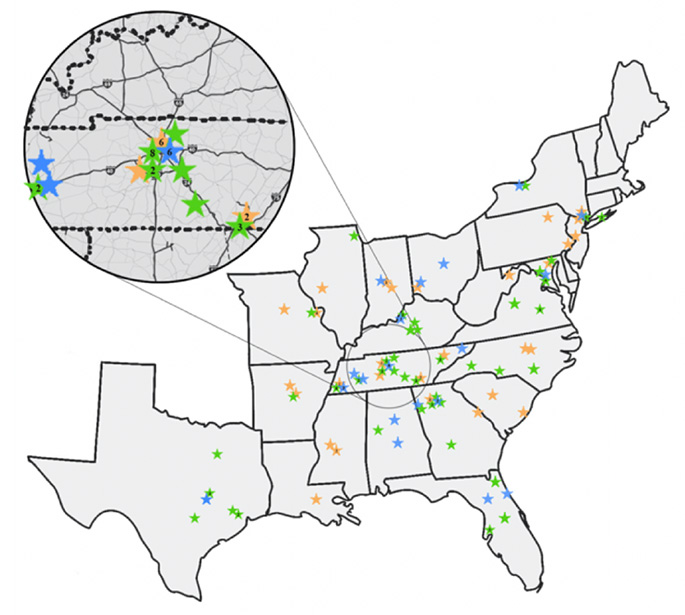Vanderbilt University has been awarded a $3.2 million grant by the National Institutes of Health to better understand how children who are deaf or hard of hearing excel at reading. Millions of children are hearing impaired and these individuals tend to have below-average reading skills. Only about 10 percent of DHH individuals attain age-appropriate reading levels by high school graduation.

“Deafness per se is not the cause of low reading skill,”said principal investigator James R. Booth. “If we understand how reading works in children who are deaf and hard of hearing, then we are better positioned to help them in learning to read. Existing models of reading do not adequately account for children who are deaf and hard of hearing, so this project will result in the first comprehensive brain-based model of the reading process in these individuals.”
Booth, who holds the Patricia and Rodes Hart Chair of Educational Neuroscience at Vanderbilt Peabody College of education and human development, leads the five-year multi-institutional study. He will use functional magnetic resonance imaging in children ages 10 to 15 to identify the brain mechanisms important for skilled reading. He will use “localizer” tasks to independently identify brain regions involved in signed language, speech reading, vocabulary knowledge and phonology (awareness of the sound structure of language).
Also on the project are Angela Scruggs, a certified American Sign Language interpreter, who brings her expertise in counseling of the deaf and hard of hearing, and Chris Brozdowski, a scholar and expert in sign language linguistics.
“Existing models of reading do not adequately account for children who are deaf and hard of hearing.”
–James R. Booth
The team will examine how brain regions are engaged in order to provide a deeper understanding of how some DHH children attain high levels of reading skill. The team is particularly interested in how these regions are differently used in higher skill children who predominantly use signed language versus oral language.
“This work will have direct implications for improving literacy education for children who are deaf or hard of hearing,” Booth said.
The study will follow-up with the children two years later. “One of the most exciting aspects of the work is to use brain function at the first time point to predict gains in reading over time,” Booth said. “Using brain scans to determine who is likely to struggle with reading in the future will allow more effective early identification, so that we provide children who are deaf or hard of hearing with additional instructional support.”
A team of researchers from around the United States serve on the advisory panel for this project (see below). They will travel to Vanderbilt to discuss their own work and consult on the project. The team has also established extensive connections with organizations that serve DHH individuals (see figure).

How to be a participant in the study
The study will involve participants from Tennessee, but the team also will be recruiting participants from across the United States. If selected, the participant’s expenses will be paid, including travel and accommodation. Only children without cochlear implants can participate, as this project uses fMRI. To apply, email braindevelopmentlaboratory@gmail.com or apply online.
Investigators
- James Booth, Vanderbilt Peabody College, principal investigator
- Melanie Schuele, Vanderbilt University Medical Center, co-investigator
- David Quinto-Pozos, University of Texas at Austin, co-investigator
Consultants
- Naomi Caselli, Boston University
- Clifton Langdon, Gallaudet University
- Amy Lederberg, Georgia State University
- Susan Nittrouer, University of Florida
- Aaron Shield, Miami University
- Ye Wang, Teachers College, Columbia University
Funding
- National Institutes of Health grant #R01 DC018171
Learn more